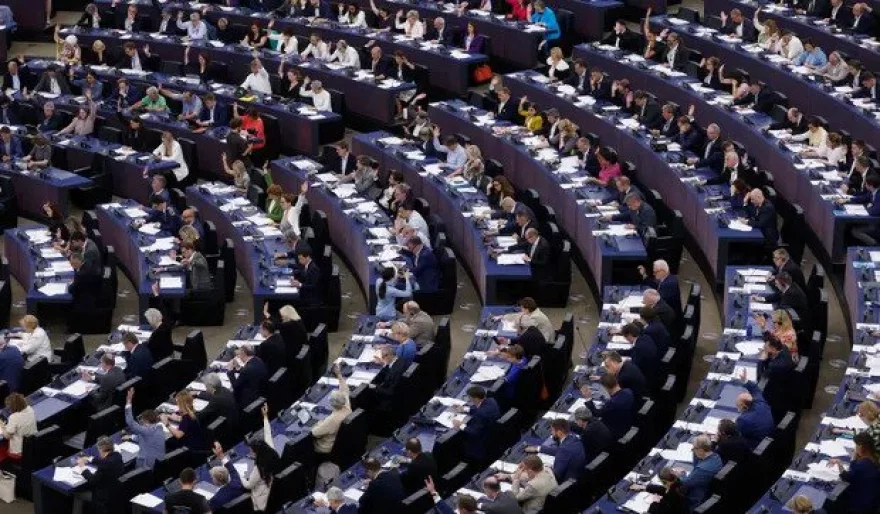Stay Ahead of the Curve
Latest AI news, expert analysis, bold opinions, and key trends — delivered to your inbox.
EU Takes the Lead: Understanding the Implications of the New AI Legislation
3 min read The EU has reached a major milestone in AI regulation! The main legislative branch has just approved draft legislation that includes a groundbreaking ban on police use of live facial recognition technology in public places. This move marks a significant step towards establishing comprehensive rules for AI. June 15, 2023 07:10
The EU takes a significant step towards AI regulation as its main legislative branch approves draft legislation. The rules include a ban on police use of live facial recognition technology in public places.
The legislation aims to set a global standard for AI, covering various applications like medical diagnoses, deepfakes, and AI-generated videos. MEPs will now negotiate with EU countries to finalize the AI Act.
European Commissioner Thierry Breton emphasizes the need for swift action and responsibility in the face of AI's social, ethical, and economic implications. It's not the time to hit the "pause button."
The EPP's rebellion over a complete ban on real-time facial recognition in Europe fails to materialize. The final vote in favor of the legislation is 499 to 28, with 93 abstentions.
Emotional recognition and biometrics at workplaces and schools will also be banned under the proposed law. European Parliament President Roberta Metsola believes this legislation sets the global standard and marks a new age of scrutiny.
The legislation requires AI chatbot developers to publish works used for training, addressing copyright infringement. Non-compliance may result in immediate deletion of applications or fines up to 7% of revenue.
Talks between the European Council, European Commission, and Parliament will begin to reconcile differences. The focus will be on finding a balance between privacy concerns and security needs regarding facial recognition.
The push for AI regulation grows on both sides of the Atlantic amid concerns about democracy and the need to protect humanity. The EU aims to reach an agreement on the law by the end of the year, with potential interim pacts with tech companies.
Margrethe Vestager, EU's antitrust chief, suggests a potential balance between principled privacy concerns and pragmatic security needs in facial recognition regulation. The parliament reflects diverse perspectives on the issue.
While the legislation's implementation may take time, the EU's proactive approach to AI regulation sets an example for the world. The goal is to ensure ethical, responsible, and accountable development and use of AI technology.



















 AI Agents
AI Agents